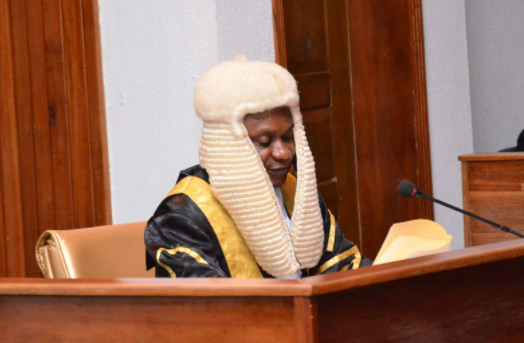BY ADETOLA BABALOLA
Nigeria is the poverty capital of the world, yet very rich in human resources. Aside from agriculture and digital technology, real estate is a good investment since it is a historical store of wealth that never loses value and constantly appreciates. But surprisingly, many Nigerians, particularly youth, are not mounting on the sector.
Nigeria’s population is increasing exponentially, with over 300 million people predicted in the next 15 years. Experts believe that real estate and housing should be given special attention. Nigerians can tap into the wealth potential in the real estate sector to alleviate the country’s poverty.
Andrew Nevin, partner and chief economist for Pricewater Coopers, an expert, stated in 2019 that real estate accounts for 60% of the world’s global assets in developed countries; reiterating the importance of proper land ownership and documentation in Nigeria. His assertion thus showed that with Nigeria’s population growing, there is a need for people to tap into the entrepreneurship space of the housing and real estate as more jobs will be created, and there will be poverty reduction.
Advertisement
The problem is, many Nigerians hold valid fears about investing in real estate. These fears could be due to previous personal experiences or stories from third parties. Whatever the case may be, there will always be risks involved in any form of investment. It is our responsibility to limit these risks to the minimum while investing. This can be done by conducting thorough research, consulting an expert in the field, and ensuring to be sacrosanct in dealings and not obstructing peoples’ property.
The majority of the fears can be summarized into two: Altercations with individuals or the government. However, it is very bad that in the same way that dishonest private persons can be found in the real estate industry, the government that is supposed to act as a middleman has frequently been found wanting, despite issuing a certificate of occupancy (C of O) which conveys legality on individual land ownership.
In fact, obtaining C of O has been cumbersome in recent years, no wonder a real estate consultant, Samuel Ukpong, explained in 2017 that there is an urgent need to make it less cumbersome to obtain as this will create easy access to land in order to enable individuals to tap into their potential through infrastructure, mortgage systems and so on. This is vital as there are many untapped lands in Nigeria’s rural areas, and reducing these logistics will attract more investors.
Advertisement
To tap into real estate investment, the government must also repeal obsolete laws; people need protection more than ever, even against the government. Private property rights in Nigeria have become a farce due to the cumbersome processes people go through to get C of O. The government has the authority to overturn peoples’ land and compensate them in whatever way it sees suitable. Even if the compensation is adequate, not everyone is willing to give up their property for any amount of money. This is yet another major reason; people need additional protection from the government, which can be achieved by a strengthened and reformed land use act.
Real estate investment has a robust economic prospect; investing in real estate doesn’t necessarily have to come through buying and selling landed properties. Cement and steel are other major semi-raw building materials and people can also tap into that space. Business empires have been built from these industries and many small and middle enterprises are coming from the cement and steel sectors.
Real estate investment is a great deal and another solid alternative to alleviate a country’s poverty as there will be more job opportunities as more businesses grow. The real estate sector has a lot of possibilities for motivated individuals and entrepreneurs, and there must be reformed protection so that the fears many Nigerians hold against investing in the sector fade over time.
Babalola is a writing fellow at African Liberty
Advertisement
Views expressed by contributors are strictly personal and not of TheCable.
Add a comment





